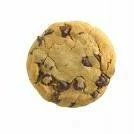|
Posted By
|

|
May 15, 2008, 2:47 pm
Flag as Inappropriate Phinn
|
|
Subject
|
Generic drugs
|
|
|
Are generic drugs really just as good as brand name drugs? I know that they are generally cheaper but I don't want to be trading cost for efficacy.
|
Comments
|
|

|
May 15, 2008, 4:03 pm
Flag as Inappropriate ewills says...
|
|
|
A generic drug (generic drugs, short: generics) is a drug which is produced and distributed without patent protection (The generic drug may still have a patent on the formulation but not on the active ingredient). A generic must contain the same active ingredients as the original formulation. In most cases, it is considered bioequivalent to the brand name counterpart with respect to pharmacokinetic and pharmacodynamic properties. By extension, therefore, generics are assumed to be identical in dose, strength, route of administration, safety, efficacy, and intended use. In most cases, generic products are not available until the patent protections afforded to the original developer have expired. When generic products become available, the market competition often leads to substantially lower prices for both the original brand name product and the generic forms. The time it takes a generic drug to appear on the market varies. Drug patents give twenty years of protection, but they are applied for before clinical trials begin, so the effective life of a drug patent tends to be between seven and twelve years.
|
|
|

|
May 15, 2008, 5:00 pm
Flag as Inappropriate K to the J says...
|
|
|
Yes, Generic Drugs are the same as the name brand drug. They always have the same ingredients, which is why they are 'generic'. It's basically the same exact thing, usually just a lot cheaper.
|
|
|

|
May 15, 2008, 7:00 pm
Flag as Inappropriate skatss says...
|
|
|
Sometimes the generic drugs just use cheaper substances to which it binds the drug. It might not dissolve in the same way as the more expensive name drug, but it is the same item and will do the same job on you.
Would you want to pay three times as much or more for a filler that has nothing to do with the substance your body really needs to heal itself?
|
|
|

|
May 16, 2008, 11:02 am
Flag as Inappropriate MSeal says...
|
|
|
They have to be a "bio-equivilant" to even make it to the market. That means an exact copy as the name brand. By law it has to work the same as a name brand drug.
|
|
|

|
May 16, 2008, 10:24 pm
Flag as Inappropriate fredkin says...
|
|
|
I have never had any issues with the generic drugs I have taken in the past, so I dont see any issues with them at all.
|
|
|

|
May 17, 2008, 2:24 pm
Flag as Inappropriate Christie says...
|
|
|
Most medications I have found to be just as effective when using the generic but occasionally this is not the case. Sometimes the binding agents add to the effect so therefore the cheaper ones aren't quite as effective. The only thing you can do is to try them and see.
Mseal - this does not mean exact copy, only that the active medication ingredient is the same. Sometimes this can make a difference in how the product works.
|
|
|

|
May 18, 2008, 12:52 am
Flag as Inappropriate lavender says...
|
|
|
Sometimes generics have large differences in formulation, and even those with the same formula ingredients listed could have significant differences. The ingredient list gives them to you in order of proportion, but not the proportions which cause them to be listed this way. So if the name brand has inactive ingredient A 60%, B 20% and C 10%, the generic could be A 50%, B 30%, and C 10%. Both would list an active ingredient at 10% but with different actual binding ingredient compositions.
Most do work similarly, as its to their advantage to make similar binding ingredient performances. Many companies test their generics as rigorously to match name brand formulas as the actual name brand does. It all depends.
|
|